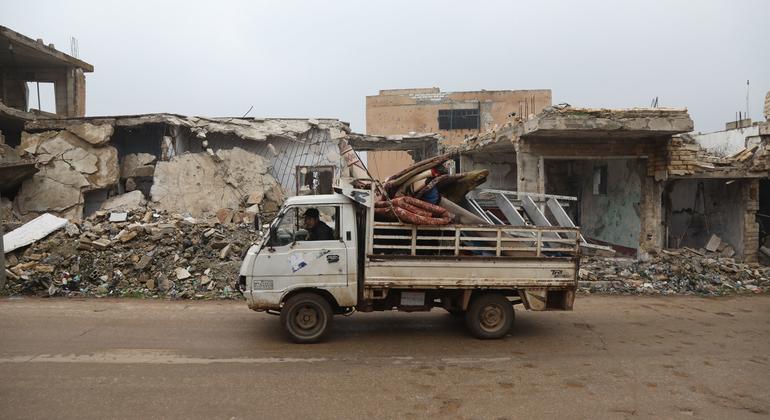The UN Emergency Relief Coordinator, Martin Griffiths, highlighted the worsening humanitarian crisis in Syria, with 16.7 million people now in need of assistance, the highest number since the conflict began 13 years ago. He emphasized the ongoing protection crisis, with children being killed and women facing increased levels of violence. The economic situation in Syria is also unstable, with the cost of living more than doubling over the past year, exacerbating suffering and instability.
Griffiths stressed the importance of sustained humanitarian access through both cross-border and crossline operations in Syria. He welcomed the recent extension granted by the Syrian government for the use of the Bab al-Salam border crossing but highlighted the need for more long-term commitments based on needs rather than set time periods. The situation in Syria remains dire, with over seven million people displaced within the country and millions more living as refugees in neighboring countries.
UN Special Envoy for Syria, Geir O. Pedersen, described the political impasse in Syria as deeply entrenched, with no clear path to implement UN Security Council resolution 2254, which outlined a roadmap for the country’s political transition. He warned of the risks of prolonged division and despair, which not only affect Syrians but also have broader implications for the international community. Pedersen highlighted ongoing clashes across the north of the country and security tensions within areas of control, complicated by external factors such as Israeli airstrikes and attacks from Syrian territory towards Israel.
Pedersen emphasized the need for a comprehensive political solution in Syria involving all key actors, including the Syrian government, opposition, civil society, and international stakeholders like Iran, Russia, Türkiye, the United States, Arab and European nations, and the Security Council. He warned that a piecemeal approach to the conflict will not work and that a ceasefire in Gaza is essential for regional de-escalation. Pedersen stressed that continued conflict in Syria will lead to further civilian suffering and could escalate instability throughout the region, underscoring the urgency of finding a political solution to the crisis.
Overall, the situation in Syria is dire, with millions of people in need of humanitarian assistance and ongoing political and security challenges hindering progress towards a resolution. The UN Emergency Relief Coordinator and Special Envoy for Syria have both emphasized the need for sustained humanitarian access, comprehensive political solutions, and regional de-escalation efforts to address the crisis effectively. The international community must work together to support the people of Syria and find a path towards peace and stability in the war-torn country.









